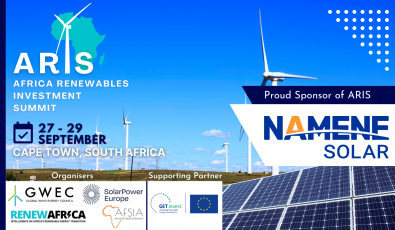The price of solar modules is increasing. What does this mean for commercial businesses in Africa?
Namene Solar’s power operation works to deliver solar at any scale to businesses across Africa to unlock limitless solar energy. Since Namene Solar entered the market in 2015, the price of solar modules has more than halved, making solar power the most cost competitive form of energy generation.
But in the past six months this trend has been reversing with the cost of solar PV modules climbing again. Here’s what commercial businesses need to know:
Price pressure on PV
In the last six months, solar module prices have increased by up to 40%. This is down to an increase in the pricing of raw materials used to make them such as glass and most notably, polysilicon. These increases don’t immediately impact customer prices. They take time to filter into distribution channels. Now, as stocks are being replenished the cost increase will become apparent in commercial projects in Africa.
These prices increases are not expected to be reversed anytime soon, as there remains a short supply of these raw materials.
These price increases are compounded by Covid-19 which has created a global shortage in shipping containers which has caused a spike in global shipping prices. For example, a container of solar modules being shipped from China to Ghana has quadrupled in price, adding 10% to the landed cost of a solar PV module compared to the previous level of transport costs.
Market under price pressure
The commercial and industrial solar market is highly competitive in many Sub-Saharan African markets.
There are many solar companies providing financing and engineering procurement and construction (EPC) services for solar. If a customer chooses to focus on price, solar providers must look to reduce their margins or find cost efficiencies to win projects in a highly competitive market. Whilst the cheapest pricing may look like the greatest energy saving, unfortunately the search for cost efficiencies in order to reach this pricing level can lead to compromises in component selection and workmanship.
In order to not pass the price increases in components on to customers, then solar providers will have to either reduce margins or search for cost efficiencies.
Customers should review offers to ensure that all components are appropriate, such as ensuring that the cable selected is the appropriate material and sizing, and not only the brand of the solar modules and inverters. This will help protect customers from being left with a substandard solar installation that is not optimal for long term performance, safety and energy savings.
How to choose the safest solar supplier
So what does this mean for commercial and industrial solar customers in Sub-Saharan Africa?
It isn’t yet clear what how market reaction to these price increases will be. The deployment of solar across the region could slow down while costs remain high, which may have negative impact for many solar companies in an already crowded market.
Customers can reduce the risk of being out of pocket by choosing the most reliable solar provider. This means doing your research. Reviewing the quality and bankability of solar providers – especially if the provider is requesting a large upfront cash payment for your solar system. Be sure to confirm that warranties can be honoured and that the quality of your solar system is not being compromised to avoid price increases of high quality solar parts.
This increased price of solar modules is likely to be here for the foreseeable future and could in fact increase further if there remains a shortfall of raw materials.
Despite this, solar is still a more sustainable and more affordable source of energy than fossil fuels and it is likely that customers will continue to transition to clean energy.
If you want to save your business’ money and be protected against future energy pricing fluctuations, Namene Solar can help. We provide scalable, full-service solar solutions that are quality assured.
Find out more – contact: power@namenesolar.com
Related Stories

Drive Sustainable Change with Namene Carbon Credits
As the urgency of climate change grows, businesses can take responsibility for their emissions and meet sustainability goals with Namene's Carbon Credits.
Read More
Empower women to power Africa: women driving the energy transition
At Namene want to honour and champion the essential role women play by connecting their communities to energy access, becoming solar entrepreneurs and leading the charge in energy companies.
Read More
Press Release: Namene Sponsors Africa Renewables Investment Summit
Namene sponsor the three-day event, which focuses on investment facilitation for renewable energy projects across Africa.
Read More